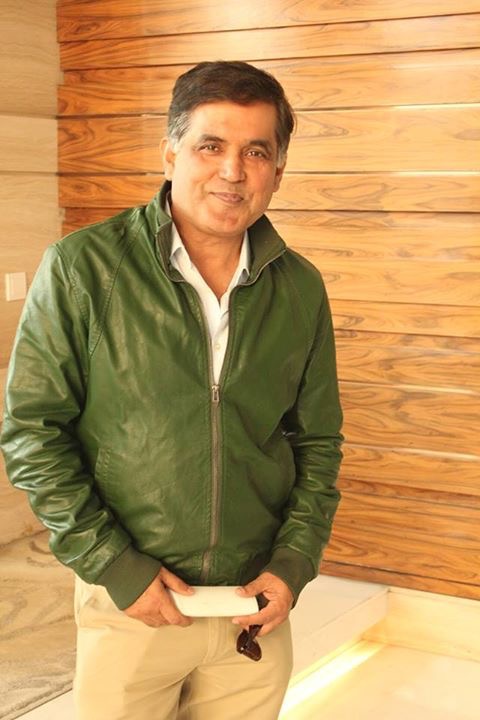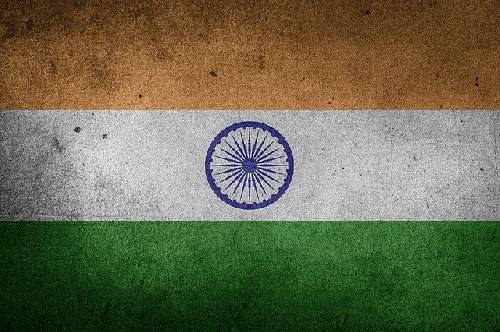This is a reprint from NewsBred.
For its commercial and political implications, the Chabahar Port deal with Iran marks the finest achievement yet of Narendra Modi's global engagements.
The commercial implications are obvious--India was hemmed in by Pakistan's intransigence to refuse direct trade between India and Afghanistan and China's One Belt One Road (OBOR) vision had the potential to clamp manacles on India's ankles.
In one stroke, India has freed itself from the curfew and it could now entertain visions of trade and infrastructure links with Middle East and Central Asia and still further with Russia and Europe.
Let's take up the bare details before we look at the wider implications and how Pakistan, China and United States, the other key players in the region, would react to it--Afghanistan, as we know from the history of Hindu Kush in the colonial times, is a prized land. So far it was its geographical location but now is the promise of immense mineral wealth which, according to Geological Survey of United States, could be worth as much as $1 trillion, due to its iron, copper, cobalt, gold and lithium potential.
Afghanistan, unfortunately, has always attracted predators who couldn't care less about the welfare of Afghan people; who could go to any length to destabilize it in order to retain a degree of control over the cursed land. United States, on one pretext or another, stays put in the name of eliminating terrorism while, as everybody knows, promoting the same in cohort with Saudi Arabia, and not long ago, Pakistan.
The birth of modern terrorism occurred in the wake of Soviet Union's departure from Afghanistan as United States planted mujahideen, with Pakistan and Saudi Arabia providing men, resources and ground support. The country was soon in chaos, split between war lords of one camp or other, and the lure of illicit heroin trade, which by a conservative estimate is second only to oil and gas in volume, has kept them involved. They aren't going to leave the country in our lifetimes.
Afghanistan thus has every reason to distrust Pakistan--after all its bà �te noire Osama bin Laden and Mullah Mohammad Omar were traced there--and by inference United States. It sure receives significant infrastructural aid from China but so tied are the fortunes of the Middle Kingdom with Pakistan that Kabul can't ignore the political implications.
India has diligently nurtured its ties with Afghanistan. Since 2001, it has provided Afghanistan with $2 billion development assistance. In December last year, Modi inaugurated Afghan parliament built on India's aid of 90 million dollars. It has contributed $300 million on Salma dam and hydroelectric power plant at Herat which Modi is expected to inaugurate next month. In 2009, India had built a 217-km highway costing $100 million that links Zaranj with Delaram, located on Afghanistan-Iran border. From there, the local road connects to Chabahar.
India has always worried over its energy supply, most of which emanates from the Middle East. It receives 57 percent of its crude oil from the Middle East which would only increase manifolds in the coming years. Saudi Arabia is its biggest supplier but knowing the close equation between the Arab kingdom and Pakistan, India has always been keen to get Iran on its side. The latter, for this very reason--after all the Middle East conundrum is largely a tussle between Sunni Saudi Arabia and Shia Iran for dominance in Muslim world--seeks a natural affinity with India. Both nations have close cultural and historical ties. Persian was the official language of the Mughal Empire in the 16th century.
Chabahar is located on the Gulf of Oman, just 80km away from Gwadar which is the cornerstone of China's pivot to Pakistan. Chabahar is just 299km east of world's most critical passageway for oil tankers, the Strait of Hormuz.
Iran urgently wants this port to work as 85 percent of its seaborne traffic is managed by its Bandar Abbas port in the Strait of Hormuz. However, this port can only handle 100,000-metric ton ships. Large ships first offload at the Jebel Ali port in the United Arab Emirates en route to Iran. In contrast, Chabhar is a deep-water port and could process large ships. Chabahar would also allow both India and Iran to access large parts of Africa, Asia, Arabia and Australasia.
India has so far committed $500 million on the Chabahar project. It's also assisting the 500-km rail link between Chabahar-Zahedan-Zaranj. The free trade zone of Chabahar could also encourage investment by its industries in urea, smelter and aluminium etc. In 2012, India had already used the port to transport a 100,000 metric ton shipment of wheat to Afghanistan.
According to the JV plans, India will develop two berths in Chabahar, one to handle container traffic and the other a multi-purpose cargo terminal. The MoU includes the sea-land access route to Afghanistan. India has plans to build a road-railroad network from Chabahar to Milak in Iran which in turn would link up the Indian-built 223-km Zaranj-Delaram road in Afghanistan.
India has also allayed worries on Iran's part over its pending $6.5 billion payment. It has begun the process of payment in Euros, as requested by Turkey's Halkbank. A cash-strapped Iran urgently needs investment and repayment of dues.
It's a win-win all situation for all three nations. Both India and Iran are surrounded by hostile powers; both need avenues to grow. Afghanistan would finally be able to access the Indian Ocean.
(Note: You can view every article as one long page if you sign up as an Advocate Member, or higher).






